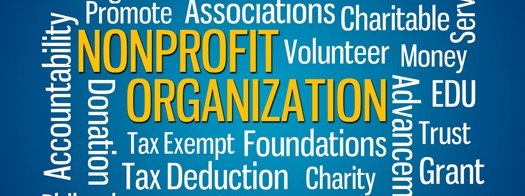
The current administration in Washington is seeking to repeal the so-called Johnson Amendment in the cause of free speech. This is an issue of critical importance to all nonprofit organizations. While adhering to our long-standing position of not taking sides in the political debate, we would like to take this opportunity to call attention to the impending repeal of the Johnson Amendment.
The Amendment
What exactly is the Johnson Amendment and why is it important to all 501c3 organizations? Enacted in 1954 by then senator Lyndon B. Johnson as part of a tax bill, the amendment prohibits all 501c3 non-profit organizations from endorsing or opposing political candidates. The amendment guarantees tax-exempt status to any non-profit that “…does not participate in, or intervene in (including the publishing or distribution of statements) any political campaign on behalf of (or in opposition to) any candidate for public office.”
The Repeal
The current administration is seeking to repeal the Johnson Amendment with a new provision in the tax bill that reads as follows:
“This amendment ensures that all 501c3 organizations will not fail to be treated as organized and operated exclusively for their respective non-profit purposes because of engagement in certain political speech, as long as the speech is in the ordinary course of the organization’s business and the organization’s expenses related to such speech are de minimis.”
The Debate
- The administration argues simply that they are protecting the right to free speech.
- The opposition (most of the nonprofit organizations in the country) argues that repeal would have a two-fold negative effect:
- Allowing tax-exempt nonprofits to take a political stand would attract enormous amounts of political activist money to the nonprofit sector because it would afford tax exempt status to political donors masquerading as charitable givers. This would inevitably erode the integrity of the nonprofit mission and turn charitable organizations into PACs.
- Once you take sides – you make enemies. Once you have enemies you have to spend time defending yourself. This is not the position charitable organizations want to find themselves in and be required to expend a large percentage of their organizational energy away from their charitable mission.
Take Heed
When considering the effect of the Johnson Amendment on the status of your organization, worry about your organization’s reputation as well as its tax-exempt status.
- How will your organization present itself to the donor world after it feels compelled to take sides in the political debate?
- How will your associates unite behind your cause if your organization supports a candidate they do not support?
- Can donors remain agnostic after your organization has taken a political position? Once nonprofits are no longer neutral by law and custom, their very nature will be altered dramatically.
If you believe that nonprofits need not be neutral you probably support the repeal of the Johnson Amendment.
If you believe, on the other hand, that nonprofits must remain entirely neutral to maintain both their tax-exempt status as well as their standing in the community you will oppose the repeal of the Johnson Amendment.

